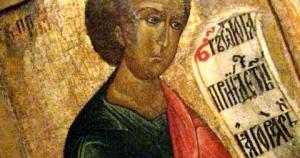 There is hope: hope for all of us who see injustice first in ourselves (God have mercy!) and then in the culture. We long to be just and to see social justice: the second growing naturally from the first.
There is hope: hope for all of us who see injustice first in ourselves (God have mercy!) and then in the culture. We long to be just and to see social justice: the second growing naturally from the first.
Our hearts cannot rest without justice and we cannot live without mercy in the justice. Hope begins in the nature of God, Just and Merciful. Hope is not certainty, because there are no quick answers to particular problems, the cosmos is too complex for such responses. God deals with us in different ways, to fit our circumstances and what is best for us. How can we hope? Joyous news, we can ask God.
God is always here and is not always silent.
We can begin with Scripture, God’s never silent voice. We must read as a conversation, a dialog with the people of God who made the book and the God who inspired it. This is hope’s education toward faith.
Christain living, the education of our souls for bliss, begins and ends when a person dialogs with God sometimes alone and sometimes in a community. Educational dialog is often called Socratic and this is not wrong, since Socrates was so in love with the good, truth, and finding both through discussion, but in reality the practice is much more ancient stretching back from Athens to Jerusalem. When asked: “How could Socratic teaching possibly work when your college has a holy book like the Bible?” I answer: because of the Bible. Socratic dialog, even in so sublime a work as a dialogue of Plato, is a fumbling attempt at a dialogue, the image of God in Socrates reaching out to the Good God. The purest expression of dialog is the people of Israel hearing and speaking with the Good God over the pages of the Bible.
Dialog is necessary because people fell from the divine plan. We lost the answers and now must grow into maturity through investigation: we ask, we challenge, we grow. Sometimes, as in Ecclesiastes, questions are not answered and we wait. Other times, Jesus comes and asks us hard questions, leaves us with hard questions (eat his flesh? drink his blood?), but continues with us so we can see ourselves: show, not tell. The divine dialog every so often begins in the same pain and wonderfully ends when Jesus reveals Himself to us in the Great Feast.
Habakkuk is a dialogue, as pure in form as any written by Plato, but more divine. The prophet speaks to God and we listen. He is not talking to us, even if he is complaining about us, the broken, unjust people of God. We are failing in our social duty to the poor and weak. Habakkuk wonders when justice will come:
2O LORD, how long shall I cry for help, and you will not hear? Or cry to you “Violence!” and you will not save? 3Why do you make me see iniquity, and why do you idly look at wrong? Destruction and violence are before me; strife and contention arise. 4So the law is paralyzed, and justice never goes forth. For the wicked surround the righteous; justice goes forth perverted.
This is often the position of the remnant of the people of God: surrounded by injustice. More deeply, this is the situation of our own souls: the remnant, the seed of the Good God planted within us as his son or daughter, is paralyzed by our injustice. We are (often) remnants in a remnant.
That’s hard.
We want justice, but we need mercy!
God begins a hopeful response to Habakkuk:
5“Look among the nations, and see; wonder and be astounded. For I am doing a work in your days that you would not believe if told.
We see so little. The actions of a praying Christian in Mongolia, the man cheating his customers in a store in the Bronx, a fire in Lima, and the plans of a tyrant in a country thousands of miles away are all interlocked. The plan could not be manifest even to the greatest super computer in the world, because it includes actions at the atomic, sub-atomic, and cosmic levels. Every contingency is accounted for by Mind and the best comes for every person God loves.
We have hope, because God reveals the Plan, even if we cannot see all the confirming details.
















